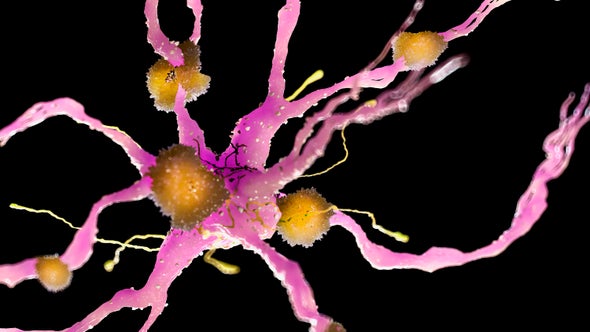Some nominally high-risk individuals may have a lower chance of developing dementia than once thought

Consumer genetic tests can sometimes result in a terrible surprise appearing in the same report that divulges whether one has a cilantro aversion or wet or dry earwax. Test takers may receive the devastating news that they have a version of a gene—apolipoprotein E epsilon 4 (APOE e4)—that greatly increases their chances of getting Alzheimer’s disease. The shock can be so great that some will seek solace in a support group to help them adjust to the possibility that they could run into cognitive problems beginning in their 50s or 60s.
One thing that makes the information so difficult to absorb is that there is no certainty about it. A person with one copy of the APOE e4 gene is more than three times as likely to wind up with Alzheimer’s (one copy can be inherited from each parent). A hit of two copies increases the risk by 10 times or more. APOE e4 may also reduce the age of the disease’s onset by up to a decade.
… (Read the full article here)
 Make a Payment
Make a Payment



